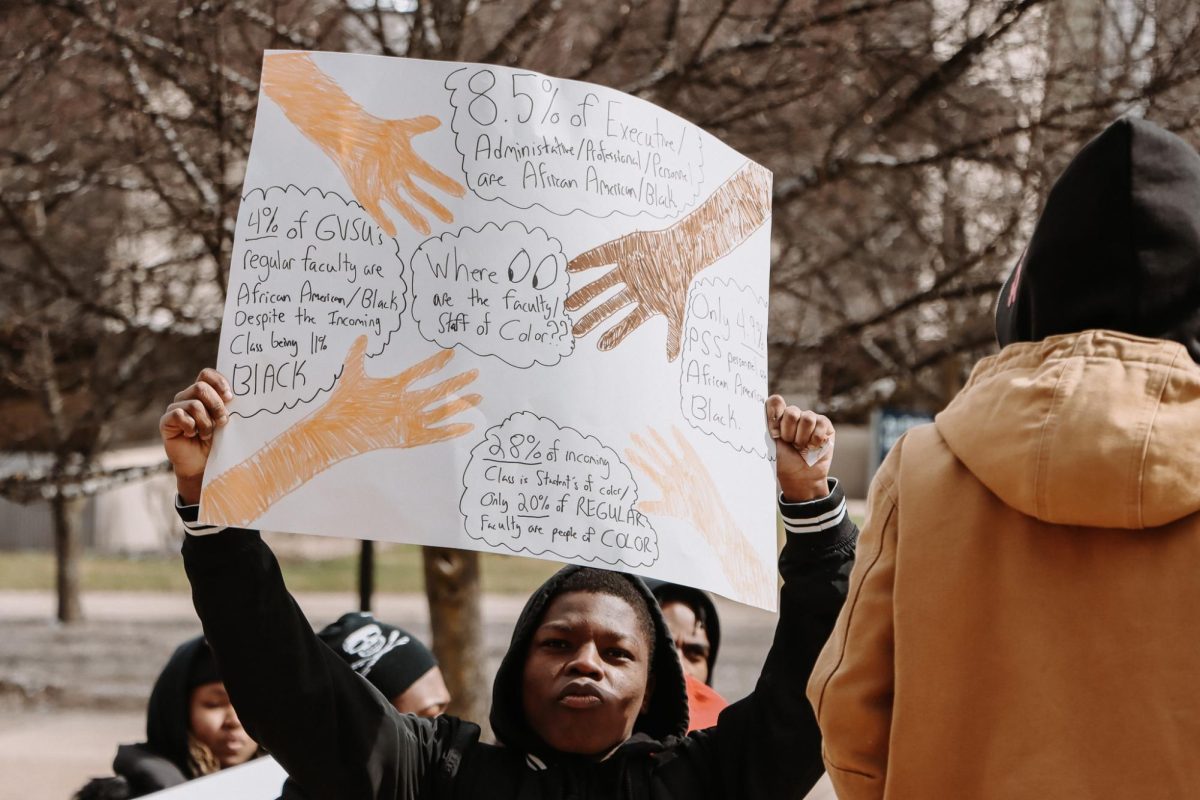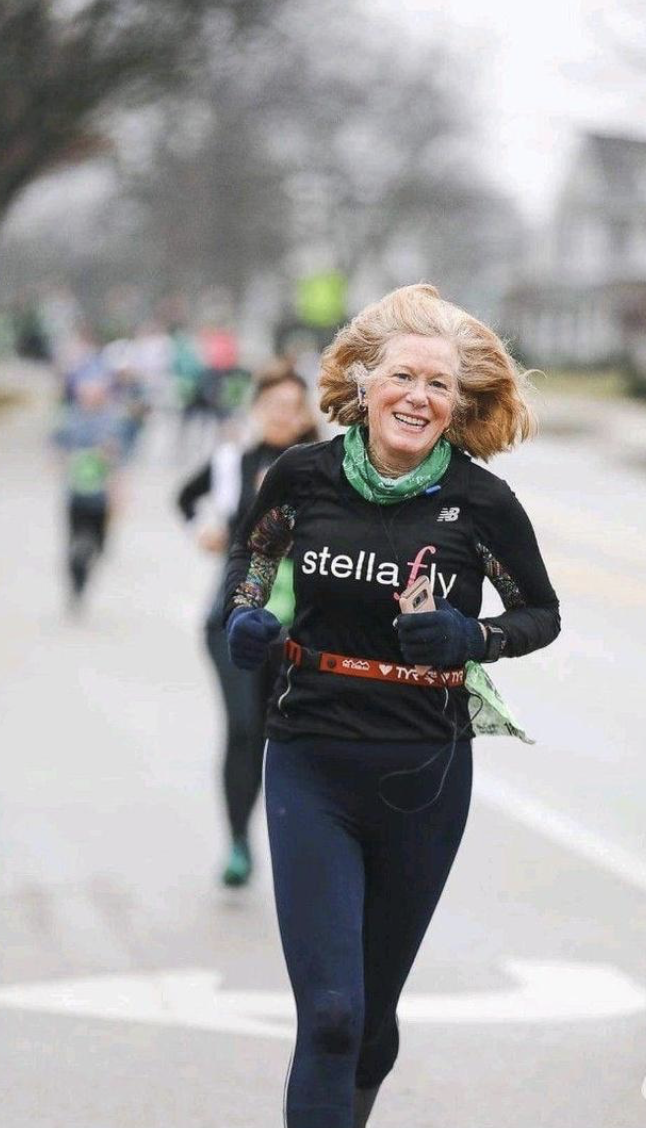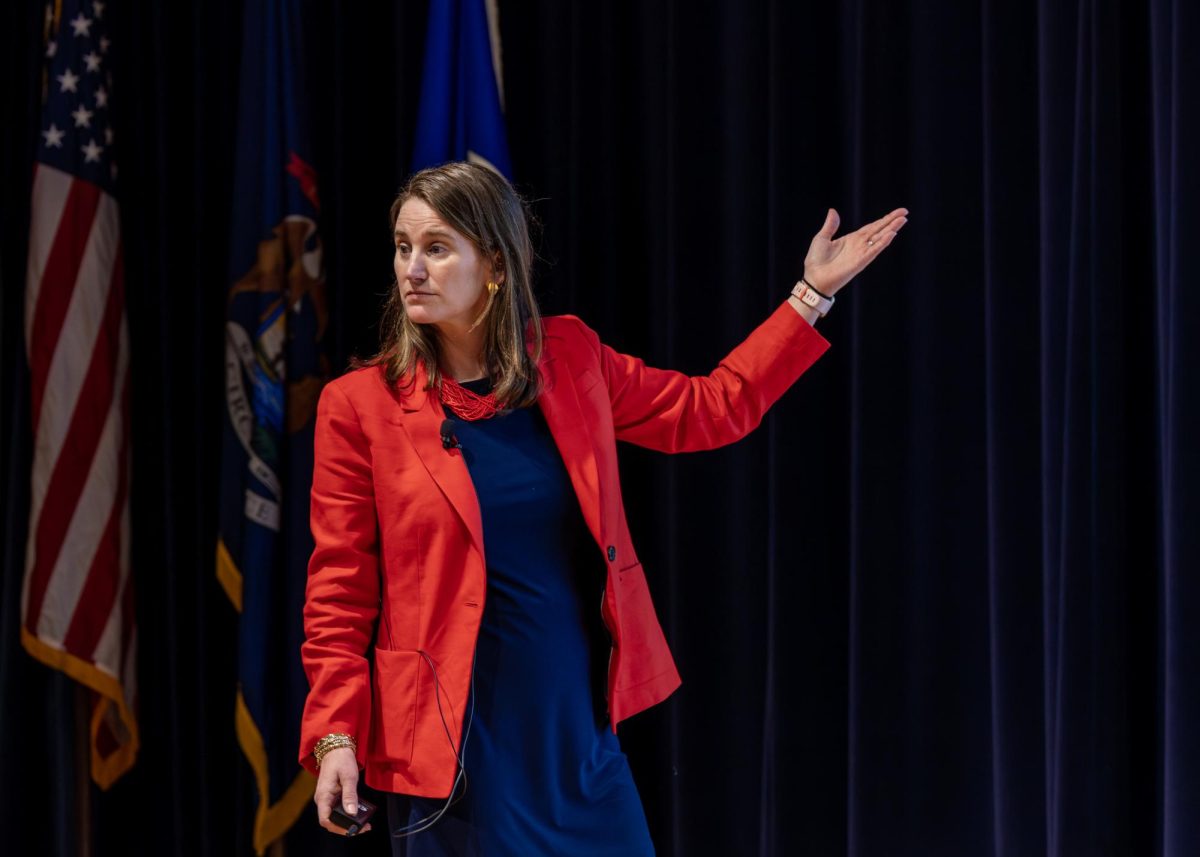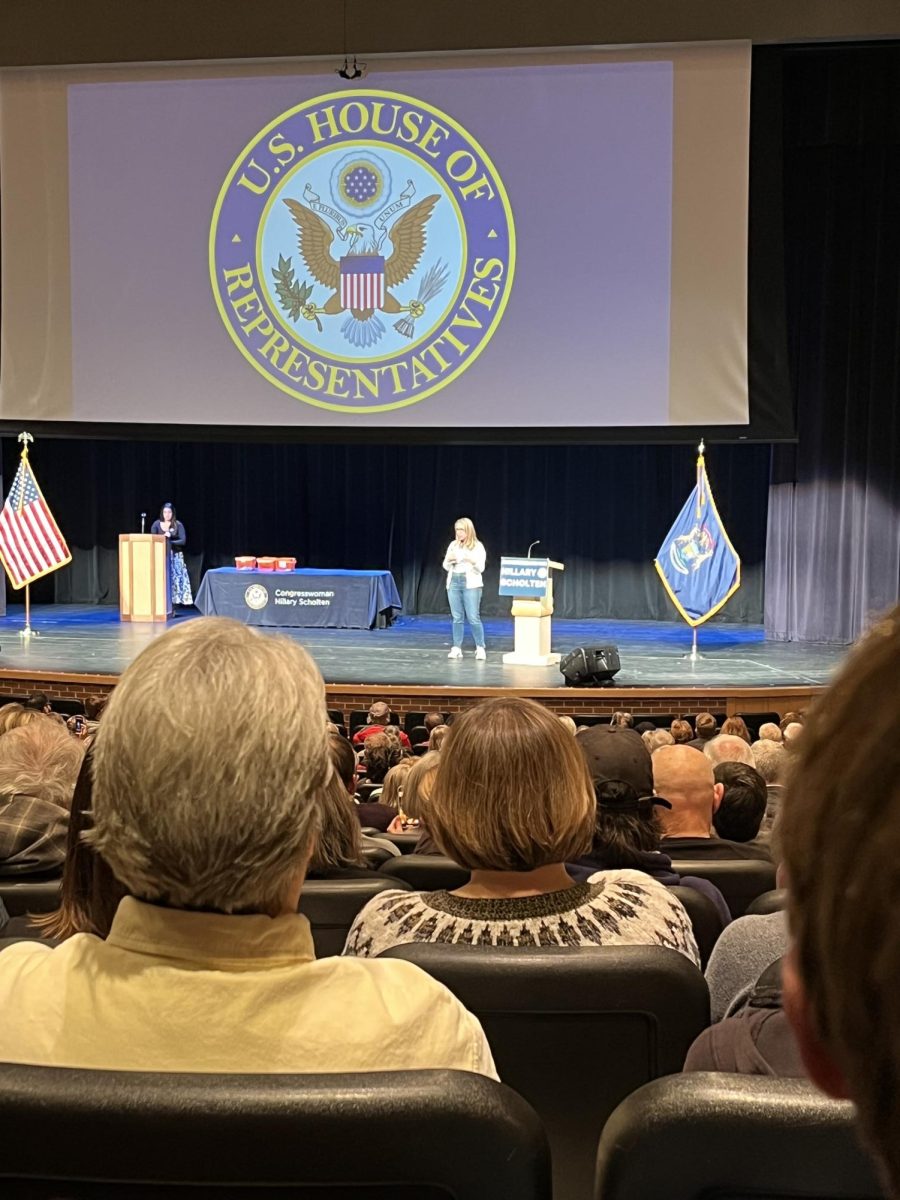Braving the wind and frigid air, concerned students at Grand Valley State University took part in a march around campus on March 18 to protest issues they feel contribute to an inequitable and non-inclusive environment for students of color at GVSU, particularly Black students.
Starting at the Cook Carillon Tower, the march led students to Mackinac Hall and across the bridge to the steps of James H. Zumberge Hall. Here, marchers held a demonstration outside of GVSU’s Senior Leadership Team’s offices. Making their message clear through call-and-response chants, hand-drawn signs and head-to-toe black attire, students are concerned about GVSU’s declining retention rates for students of color and the lack of institutional support. These students are demanding that the Senior Leadership Team provide students of color with more resources to combat the plummeting retention rates, namely through an increase of faculty of color.
Alarmed by the 54.1% fall-to-fall retention rate of Black GVSU students in 2022, Antonio Green Jr. and Michael King, president and vice president of the Iota Epsilon chapter of Alpha Phi Alpha Fraternity, Inc., said the time for conversation about diversity and retention is over. Feeling used as a marketing tool by GVSU’s Senior Leadership Team to increase diversity on campus, Green and King helped organize the diversity retention march with other leaders and GVSU student organizations to demonstrate solidarity for students of color who feel similarly neglected.
“As African Americans, we need the support of other demographics to amplify the voices of the muffled,” King said. “Frustrated students around Grand Valley organized this event strictly because, for years, we have been seeing a lack of support for students, especially students of color.”
Determined to spearhead meaningful changes for students of color at GVSU, Green and King crafted a list of demands and grievances to give to the Senior Leadership Team. Included in the list were relevant figures regarding retention rates for students of color, and proof of limited faculty diversity. Pulled directly from GVSU databases, Green and King believe the evidence in their list of demands highlight the inequitable support for students of color at GVSU.
One of the key demands in the list given to GVSU’s Senior Leadership Team is for the increase in faculty of color. According to the most recent fall 2023 data, over 77% of GVSU’s benefit-eligible regular faculty are white, equating to 648 of 839 eligible faculty members. Despite students of color representing over 28% of GVSU’s record-breaking fall 2023 class of first-time college students, Green said there is a severe shortage of professors and faculty who look like him.
“How am I supposed to know that I deserve to be here? How am I supposed to know that I can be successful?” Green said. “Seeing someone that looks like you, you know their struggle, and some of the stuff you share is very similar because of where you come from. That’s why it’s so important to see somebody that’s very successful because if you don’t, how do you know you can do it (too)?”
Furthermore, Green and King cite the low six-year graduation rate of Black students at GVSU as particularly concerning. With less than 50% of Black students in GVSU’s 2016 cohort obtaining their bachelor’s degree by Aug. 31, 2022, Green and King said this is proof that GVSU is not helping students of color succeed.
Additionally, Green and King said students of color are tired of being overly used in promotional material to highlight GVSU’s diversity and inclusion. Included in the list of demands, Green and King are calling for change regarding the disproportionate use of students of color in branding and promotional material.
“This is not an arcade. This is not Dave & Buster’s, we (students of color) are not your token,” King said.
Capitalizing on the success of the diversity and retention march, Green and King helped organize a “Politics in Color” discussion panel on March 20. The panel brought minority speakers, including Michigan State Rep. Kristian Grant, Politicking CEO and cofounder Wen-kuni Ceant, Benton Harbor Area Schools Board President Dashauna Robinson and Greater Grand Rapids NAACP Youth Council President Ja’Von Fields, to discuss issues affecting minorities. Specific issues included voter literacy, access to clean water, the importance of policy reform and student engagement in politics.
King said events like the diversity retention march and the discussion panel are invaluable resources in Iota Epsilon’s mission to create an equitable environment. By calling on students, faculty and members of the GVSU community to take action rather than rehashing the same conversations that lead nowhere, King said they are laying the foundation for future generations to have more opportunities to succeed. A significant component in this call to action, King said, is educating people on the importance of policy.
With the upcoming primaries and general election, Green and King also recognize the importance of ensuring students of color are educated and ready to use their vote. Much of this education, Green said, pertains to making sure students know how and where to vote.
“We can march and rally all day long, but to have the opportunity to be in the faces of state representatives, legislators, senators and house speakers is extremely important,” King said. “They are the ones making these laws. They are the ones who can change our lives.”
In collaboration with other student organizations and leaders at GVSU, Iota Epsilon will host a town hall at the Kirkhof Center in Room 2266 on April 2 at 6 p.m. Members of the GVSU community are encouraged to attend and hear from students and faculty who will be sharing their personal experiences of inequity on campus. Additionally, attendees will have the opportunity to see the list of demands and grievances sent to GVSU’s Senior Leadership Team.
Green and King said they fully expect GVSU’s Senior Leadership Team to attend and be receptive in working together to create a more inclusive and equitable campus for students of color.












